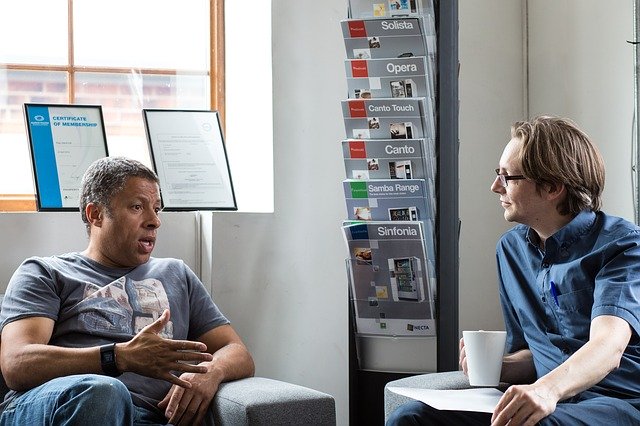(844) 49-COACH



Social Intelligence: The Opposite of Self-Absorption
“Self-absorption in all its forms kills empathy, let alone compassion. When we focus on ourselves, our world contracts as our problems and preoccupations loom large. But when we focus on others, our world expands. Our own problems drift to the periphery of the mind and so seem smaller, and we increase our capacity for connection – or compassionate action.”
Daniel Goleman, Social Intelligence: The New Science of Human Relationships
Are you self-absorbed, self-centered, narcissist of an Egoistical maniac? How would you know?
To be self-absorbed means to be deeply preoccupied or totally wrapped up in oneself – one’s own thoughts, wants, and needs, at the exclusion of the thoughts, wants, and needs of other people. As Daniel Goleman explains in the above quote, self-absorption distances us from the people around us. It makes us incapable of really understanding and relating to other people. It causes breakdowns in communication, mistrust, worry, envy, and even anxiety.
When we focus out and practice being concerned about what other people are feeling and what their needs are, our world expands. It brings us closer to others & it causes people to have positive feelings & thoughts about you. For some, this skill – social intelligence – comes naturally. Others have to work at it. But rest assured the components of social intelligence are something that anyone can master with practice.
Social intelligence is a new science that explores and explains various phenomena, from the way we connect with others, how we make friends, to how we influence others. Along with emotional intelligence, Social intelligence is more valuable than pure intelligence in many ways. Those with a high level of social intelligence tend to be very successful, even with an average IQ.
We all know of a person with a genius IQ that’s stuck delivering pizzas.
Learn how to enhance your level of social intelligence:
- Smile. Smiling is normal human behavior. Few things are more odd or uncomfortable than a person that never smiles. Smiling puts others at ease and it will even make you feel better. Smile often with the following actions and Acronym:
S low down and open your arms
M indset – Have a positive mindset
I mpressions – Create positive first impression
L isten to understand not respond
E motions – Empower yourself with positive Emotions - Practice Emotional Intelligence. Emotional intelligence is actually a set of skills that can be acquired. The higher a person’s position, the more emotional intelligence matters — it is crucial for successful relationships. Empathy & self-awareness are two fundamental attributes, which with practice anyone can improve over time and will improve every area of your life & relationships. It will help you become more aware of what others in your social environment are feeling and allow you to communicate more effectively.
- Be sensitive to others. It’s important to be able to recognize emotions in others. The easiest way to do this is to understand human interaction. Their actions, words, and facial expressions will reveal their emotional state.
Consider how you would feel in a similar situation. Each person is unique, but we have more in common than not.
Focusing on the emotional state of others is a welcome break from focusing on your own.



“Listening with compassion and respect is one of the best ways for you to develop a strong rapport with the people around you.”
- Actively Listen. Do you listen when others are speaking, or are you merely waiting for your next opportunity to speak? Others appreciate a good listener. We feel more important and validated when we have someone’s undivided attention.
Are you a good listener? How do you know?
Listening with compassion and respect is one of the best ways for you to develop a strong rapport with the people around you. It also opens the door for others to share their ideas, suggestions, and concerns–all of which can contribute to stronger relationships.
Avoid looking around the room or fidgeting.
Wait until the other person is done talking before you open your mouth. Be patient. - Eye contact is key. It’s much more challenging to read others if you’re not looking at them. You also send a message of shyness or submissiveness if you avoid making good eye contact. More eye contact suggests a higher level of seriousness or dominance.
- Learn about body language. Scientists believe that we communicate more with our body than we do with our words. While it’s easy to say something that isn’t true, it’s much more difficult to fake body language.
Watch others and observe their gestures, eye contact, and body positioning. What can you see? Observe interactions between others, but stay out of earshot.
Read. There are countless books and a plethora of information on the internet about body language. - Be assertive without being aggressive. We admire and respect assertive people. It’s frustrating when others beat around the bush or attempt to be indirect. But there’s a difference between assertiveness and aggressiveness.
Assertiveness is the honest and reasonable statement of your opinions, needs, and feelings. “I would prefer to have dinner at Maggio’s tonight” is an assertive statement.
Aggressiveness lacks respect for the rights of others. “We’re having dinner at Maggio’s tonight” is an aggressive statement, because it ignores the other person’s right to have an opinion.



“It’s necessary to maintain your relationships and make them a priority if they’re going to flourish.”
- Actively manage your relationships. Relationships are constantly changing and evolving. It’s necessary to maintain your relationships and make them a priority if they’re going to flourish. This is a part of life that requires assertiveness. Being too passive will eventually lead to challenges.
How high is your social IQ?
Social intelligence consists of communication and social skills. Social intelligence is becoming more challenging to grow and maintain due to the increasing reliance on electronic communication. If you’re smart as a whip, but struggling in everyday life, consider spending time to develop your social intelligence.



Sharing the fruits from his Garden of Knowledge: Trushar Mody is an accomplished business entrepreneur, coach and mentor with over 35 years of experience in the manufacturing,, finance, retail, nonprofit and service industries. He is a thought leader in the field of Emotional Intelligence (EI) and Diversity and Inclusion as it applies to business success. He represents the firm, Encore Consulting Group (EncoreCorporateTraining.com) which specializes in soft skills training, coaching and business consulting.




